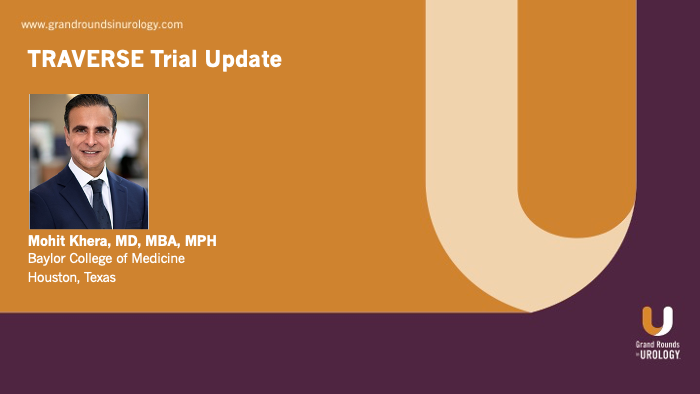madman
Super Moderator

TRAVERSE Trial Update
Mohit Khera, MD, MBA, MPH, presents the latest updates from the TRAVERSE Trial, examining the cardiovascular effects of testosterone therapy.
Mohit Khera, MD, MBA, MPH, presents the latest updates from the TRAVERSE Trial, examining the cardiovascular effects of testosterone therapy. This presentation is an update to Dr. Khera’s Results from the TRAVERSE Trial lecture, which was presented to the Grand Rounds in Urology audience in August 2023.
Dr. Khera begins by reviewing the history of the TRAVERSE Trial and its initial results regarding the impact of testosterone therapy on cardiovascular health. He outlines the design of the TRAVERSE Trial, which concluded in January 2024 with a final enrollment count of 5,246 men.
In addition to the original secondary and tertiary endpoints regarding cardiovascular safety and prostate safety, Dr. Khera discusses other secondary endpoints in the trial. These endpoints were sexual function, depression, bone fractures, diabetes, and anemia.
Dr. Khera concludes by delving into the final results of testosterone therapy on all endpoints in the trial. He notes that the results indicate that testosterone therapy does not significantly worsen BPH symptoms and may protect against the development of anemia. However, he notes that testosterone therapy may raise the risk of bone fractures and pulmonary embolisms.











